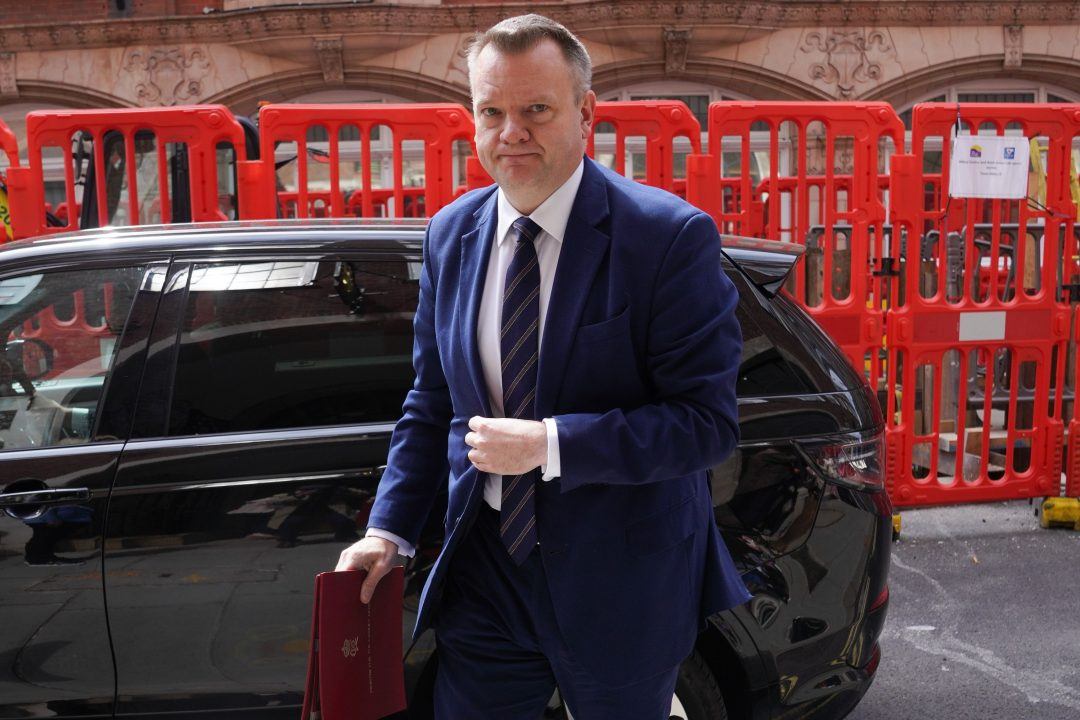Some victims of the infected blood scandal will die before they receive compensation and the current number of people who have received a payout is “unsatisfactory”, the government has admitted.
People affected by the scandal, dubbed the “biggest disaster in the history of the NHS”, said they “don’t have time on our side” as they urged officials to speed up compensation payments.
Sir Brian Langstaff, chairman of the Infected Blood Inquiry, is holding two days of special hearings to examine the “timeliness and adequacy of the Government’s response to compensation”.
Opening the hearing, Sir Brian said: “It is no secret that the inquiry has received letter after letter, email after email, call after call, expressing worries and concerns about how compensation is being delivered.
“The inquiry will do everything in its power to identify action that can be taken by the Government and by the Infected Blood Compensation Authority to improve the delivery of compensation and to ensure that justice is done.”
Cabinet Office minister Nick Thomas–Symonds began his evidence by apologising to victims.
“I know many people before me will have suffered unimaginably because of this scandal, I would like to acknowledge that the government has failed you over decades on behalf of the state. I am sorry,” he said.
Pointing out that it could be years before some people will receive compensation, inquiry counsel Jenni Richards KC asked Thomas–Symonds whether both infected and affected people will die before they receive compensation.
“Yes,” he replied.
The minister, who was heckled as he gave evidence, told the hearing that he is “restless for further progress on payments”.
Ms Richards read out the latest compensation figures from the IBCA, which show that just over 100 people have received a payment, saying: “That’s a profoundly unsatisfactory state of affairs, isn’t it?”
Thomas–Symonds replied: “It absolutely is, and I’m never going to think this is satisfactory until everybody has received the compensation they are due.”
He said that he is pressing the IBCA on how the process can “speed up”, including asking whether more risks can be taken to ensure prompt payments.
Thomas-Symonds was also challenged on whether infections which occurred before January 1 1982 will “fall outside the liability window”.
The minister told the inquiry he would “go away and look at that situation”.
He also said he would consider a “supplemental route” for affected people including children, parents and siblings.
Campaigners representing people infected and affected by the scandal gave emotional evidence on Wednesday morning.
Andrew Evans, from the campaign group Tainted Blood, shared a quote from one of the members of the group, who said: “I’m utterly exhausted. The anguish is beyond words. I just want this over.”
Mr Evans, who was infected with HIV and hepatitis C through contaminated blood products during treatment for haemophilia as a child, said that victims have been left feeling “betrayed and disappointed”, adding: “People have given up on any expectation of receiving anything.
“They have lost all hope of ever getting justice.”
Gary Webster, who was infected with HIV and hepatitis C when he attend Lord Mayor’s Treloar School in Hampshire (Treloar’s) in the 1970s and 80s, said his experience with the compensation scheme had been a “nightmare”.
The 60-year-old said: “People will not get their compensation and a lot of claims will die with them.
“It’s just too slow and people won’t get the justice they deserve.”
Campaigner Carolyn Challis was infected with hepatitis C when she received blood transfusions during chemotherapy treatment for lymphatic cancer between 1992 and 1993.
The mother-of-three from North Devon said that the compensation scheme is “not fit for purpose”.
“We don’t have time on our side or the energy to keep fighting for justice,” she said.
Bill Wright, from Haemophilia Scotland, told the inquiry that the scandal was the “biggest disaster in NHS history”.
Meanwhile, Alan Burgess, who was co-infected with HIV and hepatitis C while receiving treatment for haemophilia, said that the ICBA was “playing games with our mental health”.
He added: “They’re playing games with our mental health and our physical health – they’ve got to be made to realise what they’re doing.
“It’s like trying to nail custard to the wall, you can talk to them but they don’t seem to listen.”
He also told the hearing victims were dying while the process was ongoing, with one of his friends dying just weeks ago.
Nigel Hamilton, chairman of Haemophilia Northern Ireland, said: “We are entitled to justice and we will have justice.”
In a message to the IBCA, Mr Hamilton added: “Work with us like never before and ensure that we are not just listened to, but we are also heard.”
Mary Grindley, 76, who has been campaigning for 45 years, called on the compensation authority to set a timeline for “payments to estates”, adding: “It’s as though the people who have died have been totally forgotten.”
The grandmother gave up teaching in 1991 to look after her husband, John, who contracted HIV and hepatitis C while receiving treatment for haemophilia and who died from Aids in 1994 at the age of 41.
More than 30,000 people in the UK were infected with HIV and hepatitis C after they were given contaminated blood and blood products between the 1970s and early 1990s.
Some 3,000 people died as a result and survivors are living with lifelong health implications.
In her October budget, Chancellor Rachel Reeves allocated £11.8bn to compensate victims, administered by the IBCA.
The IBCA said that, as of May 6, 677 people have been asked to start their claim and 106 payments have been made, totalling more than £96m.
Officials from the IBCA will give evidence on Thursday.
Follow STV News on WhatsApp
Scan the QR code on your mobile device for all the latest news from around the country


 PA Media
PA Media

























